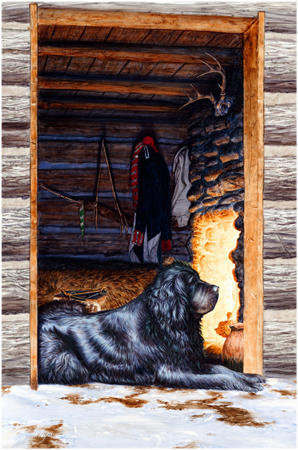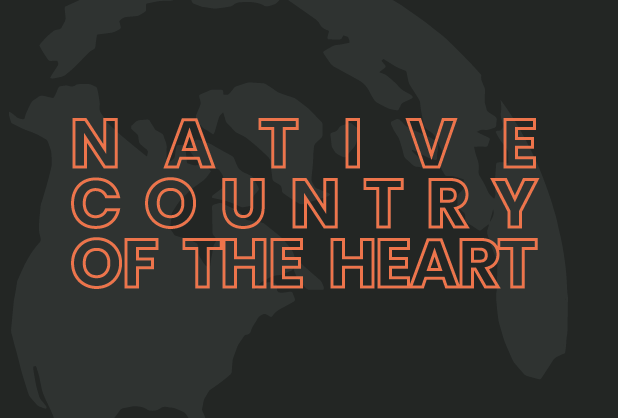| Author | Cherrie Moraga |
|---|---|
| Country | United States |
| Language | English |
| Genre | Memoir |
| Published | 2019 (Farrar, Straus and Giroux) |
| ISBN | 978-0-374-21966-6 |
A queer Latina feminist focuses on her ferocious, survivor mother from Tijuana. In her moving portrait, Moraga (English/Univ. Of California, Santa Barbara; A Xicana Codex of Changing Consciousness: Writings, 2000-2010, 2011, etc.), the founder of Kitchen Table: Women of Color Press, examines her close but tortured relationship with her now-deceased mother. Native Country of the Heart is the writer and activist Cherrie Moraga's love letter to her unlettered mother. It begins with her mother, Elvira Isabel Moraga, who as a child, along with her siblings, was hired out by her own father to pick cotton in California's Imperial Valley.

Native Country of the Heart: A Memoir is a 2019 book by Cherríe Moraga. It is a memoir in which the central figure is her mother, Elvira, and in the process of examining Elvira's history, Moraga attempts to also tell the larger story of the Mexican American diaspora. Moraga spins her own story in relation to that of Elvira's, from her own coming of age and coming out of the closet, all the way through Elvira's eventual decline from Alzheimer's disease.
Synopsis[edit]
Elvira Isabel Moraga came of age in Tijuana's golden era in the 1920s. In her childhood she worked as an itinerant agricultural worker for her father, in California. This arrangement limited her access to education, and she never made it beyond the 3rd grade, leaving her functionally illiterate in two languages. Later the family crossed the border to Mexico, in her teens, Elvira worked hat-check-and-cigarette-girl at a fancy gambling hall in Tijuana. She eventually makes her way back to Alta California where she meets and marries Joseph, a white railroad worker. Their children, James, JoAnn and Cherrie, born in east Los Angeles, grow up on the border between the suburban American dream and as members of a mixed-race family and community. Moraga describes her own difficulties coming to terms with her lesbian sexuality, and her mother's difficulty accepting it. But in the end, her mother assures her, “how could you think that there is anything in this life you could do that you wouldn’t be my daughter?”
After college, Moraga is intent on learning Spanish and connecting to her roots, spending a significant amount of time in Mexico City, to where she brings Elvira on a visit. Later, she moves to the Bay Area, has a son, and finds a long-term relationship with Celia, also a Chicana. Her older brother, however, has married and Anglo woman, and has become distant from the family. Her sister JoAnn has settled in Orange County. The shifting relationships between the siblings and the parents follow the currents of their relationships with their identities. Moraga points out that though 'all of Mexico became Mestizo', in reality, most were actually native, and that aspect of their heritage was always erased in favor of the colonialist Spanish, as evidenced by Elvira's exclamation of pride upon visiting the tomb of a conquistador general named Moraga, who might actually have been distantly related to their family line.

Moraga describes Elvira as exceedingly charming, and exceedingly capable, her life one of constant doing. “She was someone who could handle so much and so many in our world. In our extended familia, she served as the planet around which our near-hundred relations hovered like orbiting moons.” Her husband Joseph, often a source of disappointment to her, seems to fade into the background. When, nearing 90, Elvira succumbs to the 'purgatory of Alzheimer's', one of the first memories of which she lets go is that of her 52-year marriage to him. Forced to place her in a nursing facility, Elvira's children, grandchildren and extended family continue to orbit her there. With all the attendant difficulties, Moraga describes the dementia as a sort of liberation for Elvira, even finally allowing her for the first time in her life to admit 'soy India' (I am Indian).
Reception[edit]
Kirkus Reviews calls Native Country a 'moving' and 'sympathetic' portrait by a queer Latina of her close, and sometimes fraught relationship with her mother, and 'of Mexican-American feminism (both in mother and daughter) delivered in a poignant, beautifully written way.'[1]The Los Angeles Times review calls the memoir 'bracing', and approves of the expert telling of the parallel narratives of Moraga's journey to understand herself as 'Mexican, mixed-blood, queer, female, almost Indian', and her mother's story, from her childhood picking cotton in California's Imperial Valley, the glory days of Tijuana in the 1930s, and her role as wife to a 'gringo' and mother to three children, all the way through her last days of struggle with Alzheimer's disease.[2]
The NBC News review deems the book 'exquisite', pointing to how Moraga's telling of Elvira's story 'amplifies the need to recognize how interwoven the past is to the present, and that to understand ourselves we must locate our ancestors, who are an extension of who we are.' The review concludes, 'Heart-wrenching and heartwarming, Moraga’s memoir delivers new insights into the acclaimed writer’s creativity, and introduces readers to another of her significant muses.'[3] Publishers Weekly likewise concludes that ' Moraga’s captivating and perceptive memoir successfully conveys her belief that “we are as much of a place as we are of a people.”[4]
Laurie Unger Skinner, in Library Journal, writes: 'This thoughtful chronicle of the love and acceptance between mother and daughter, the generational effects of the complicated cultural relations between Mexico and America, and caring for a loved one with Alzheimer's will appeal to readers interested in any or all of those subjects.'[5]
References[edit]
- ^NATIVE COUNTRY OF THE HEART | Kirkus Reviews.
- ^'Cherríe Moraga's memoir reconsiders 'home' in a post-colonial landscape'. Los Angeles Times. 2019-04-18. Retrieved 2020-10-29.
- ^'Cherríe Moraga's memoir 'Native Country of the Heart' centers on her mother'. NBC News. Retrieved 2020-10-29.
- ^'Native Country of the Heart: A Memoir'. www.publishersweekly.com. Retrieved 2020-10-29.
- ^'Native Country of the Heart: A Memoir - Bookverdict.com'. bookverdict.com. Retrieved 2020-10-29.
External links[edit]
- Native Country of the Heart on CherrieMoraga.com
- Native Country of the Heart on Macmillan Publishers
出版社: Farrar, Straus & Giroux Inc
副标题: A Memoir
出版年: 2019-5-1
页数: 256
定价: AUD 33.00
装帧: Hardcover
ISBN: 9780374219666
- 加入购书单已在购书单

内容简介 ······
Native Country of the Heart: A Mexican American Geography is, at its core, a mother-daughter story. The mother, Elvira, was hired out as a child by her own father to pick cotton in California's Imperial Valley. The daughter, Cherrie L. Moraga, is a brilliant, pioneering, queer Latina feminist. The story of these two women, and of their people, is woven together in an intimate m...
Native Country of the Heart: A Mexican American Geography is, at its core, a mother-daughter story. The mother, Elvira, was hired out as a child by her own father to pick cotton in California's Imperial Valley. The daughter, Cherrie L. Moraga, is a brilliant, pioneering, queer Latina feminist. The story of these two women, and of their people, is woven together in an intimate memoir of critical reflection and deep personal revelation.
As a young woman, Elvira left California to work as a cigarette girl in glamorous late-1920s Tijuana, where an ambiguous relationship with a wealthy white man taught her life lessons about power, sex, and opportunity. As Moraga charts her mother's journey - from impressionable young girl to battle-tested matriarch to, later on, an old woman suffering under the yoke of Alzheimer's - she traces her own self-discovery of her gender-queer body and Lesbian identity, as well as her passion for activism and the history of her pueblo. As her mother's memory fails, Moraga is driven to unearth remnants of the Mexican American diaspora and an American story of cultural loss.
Poetically wrought and filled with insight into intergenerational trauma, Native Country of the Heart is a reckoning with white American history and a piercing love letter from a fearless daughter to the mother she will never lose.
作者简介 ······
Native Country Of The Heart A Memoir
Cherr e Moraga is a writer and cultural activist whose work serves to disrupt the dominant narratives of gender, race, sexuality, feminism, indigeneity, and literature in the United States. A co-founder of Kitchen Table: Women of Color Press, Moraga co-edited the highly influential volume This Bridge Called My Back: Writings by Radical Women of Color in 1981. After twenty years...
Cherr e Moraga is a writer and cultural activist whose work serves to disrupt the dominant narratives of gender, race, sexuality, feminism, indigeneity, and literature in the United States. A co-founder of Kitchen Table: Women of Color Press, Moraga co-edited the highly influential volume This Bridge Called My Back: Writings by Radical Women of Color in 1981. After twenty years as an Artist-in-Residence in Theater at Stanford University, Moraga was appointed a professor in the Department of English at the University of California, Santa Barbara in 2018, where, with her artistic partner Celia Herrera Rodr guez, she instituted Las Maestras Center for Xicana Indigenous Thought and Art Practice. She is the recipient of a National Endowment for the Arts Theatre Playwriting Fellowship Award and a United States Artist Rockefeller Fellowship for Literature.

Strong Hearts Native
豆瓣成员常用的标签(共0个) ······

Native Country Of The Heart Quotes
Native Country of the Heart的书评 · · · · · · ( 全部 0 条 )
